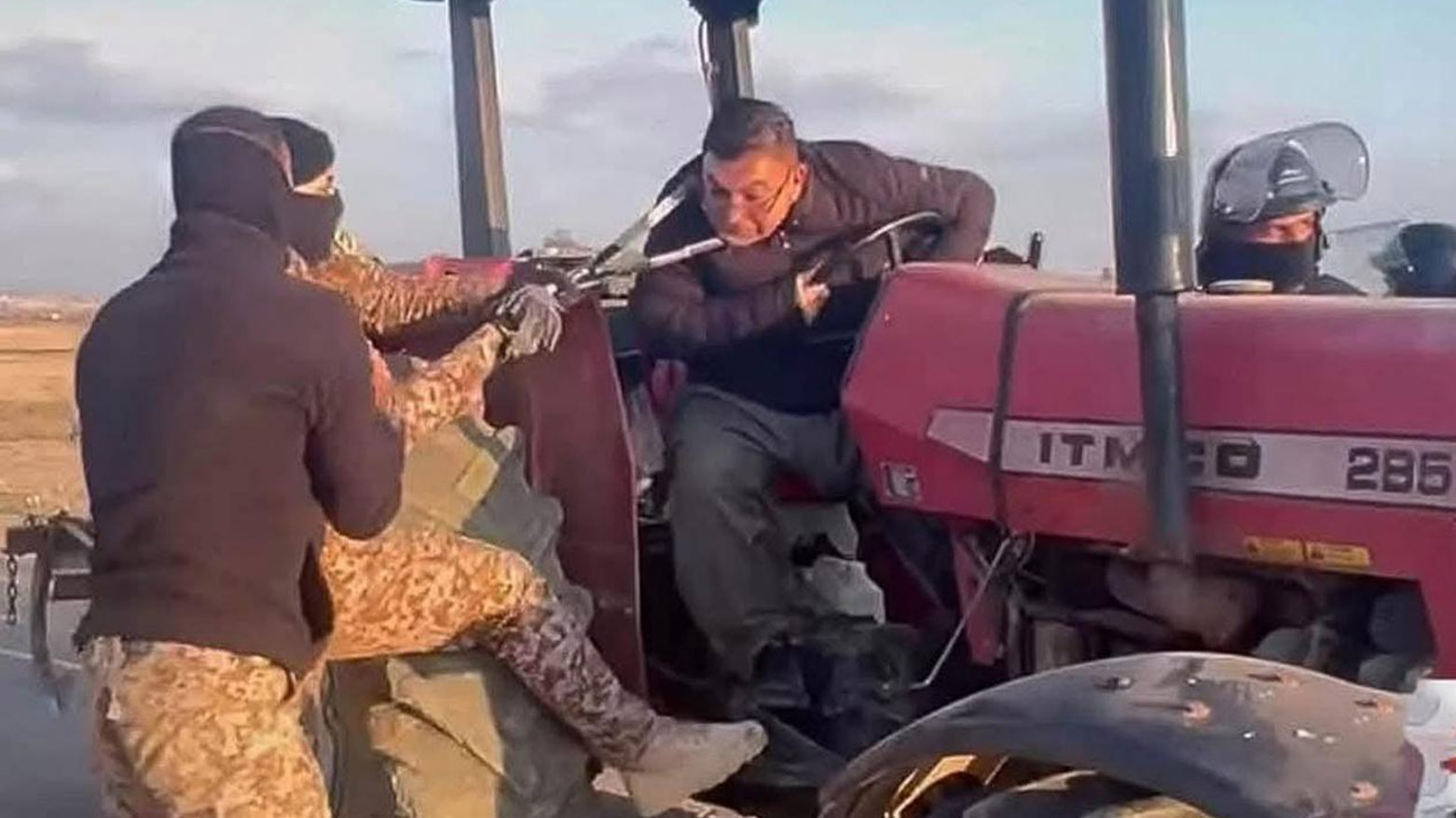Iraqi Lawmakers Condemn Army Actions in Kirkuk
The move has been described as unconstitutional and a violation of the rights of Kurdish farmers, highlighting deep-rooted land disputes and ongoing tensions in Kirkuk’s disputed territories.

ERBIL (Kurdistan24) – The Iraqi army's actions against Kurdish farmers in Shanagha have sparked strong condemnation from Kurdish lawmakers and political leaders, who are calling for immediate legal action against those responsible.
The move has been described as unconstitutional and a violation of the rights of Kurdish farmers, highlighting deep-rooted land disputes and ongoing tensions in Kirkuk’s disputed territories.
Political Unity in Defense of Shanagha Farmers
Fazil Mirani, head of the Kurdistan Democratic Party (KDP) Politburo’s Administrative Body, strongly condemned the incident. Speaking during an anniversary ceremony for the Kurdistan Students and Youth Union on Tuesday he stressed the importance of political unity in defending Kurdish land rights.
“This is Kurdistan’s unwanted history. Kurds have continuously faced oppression and had their rights violated, but they have resisted. All of us, including the government, parliament, and political parties, must defend our farmers,” Mirani stated.
He underscored that the issue transcends agriculture and is fundamentally a matter of territorial integrity.
“This is not just a farmers' issue; this is a land issue,” he declared, adding that all Kurdish factions, particularly the KDP and PUK, should use their political, military, and diplomatic strength to protect farmers and their rightful land.
Furthermore, Kurdish factions have formally raised their concerns to Iraq’s highest officials, including the Prime Minister and President, urging them to hold those responsible for the violations accountable.
Mirani drew historical parallels between the Shanagha incident and past Kurdish struggles for territorial autonomy.
“In the past, the Kurdistan Democratic Party lost a revolution over land. We cannot today turn a blind eye to the occupation of our land. Not only is it being occupied, but they won’t even allow our farmers to access and plow their lands,” he said.
Parliamentary Outcry Against Army's Actions
Gharib Ahmed, a member of the Iraqi Parliament’s Agriculture Committee from the Patriotic Union of Kurdistan (PUK) faction, also spoke with Kurdistan24 and said that the Iraqi army's intervention in Shanagha was unlawful.
“The actions of the Iraqi army forces in Shanagha against Kurdish farmers are illegal and completely unconstitutional,” Ahmed stated.
He emphasized that his visit to Shanagha was aimed at defending citizens' rights and upholding the law. He highlighted that the Iraqi Parliament had unanimously passed three key bills, one of which explicitly repealed the Baath regime’s decisions on land confiscation.
“As members of the Agriculture Committee, we fully support Shanagha’s farmers and will defend their rights,” Ahmed affirmed.
48-Hour Ultimatum to the Iraqi Army
Amid growing tensions, Shanagha farmers have issued a 48-hour ultimatum to the Iraqi army, demanding an end to their restrictions on farming activities.
The ultimatum, set to expire on Thursday, February 20, 2025, signals a critical moment in the standoff between Kurdish farmers and military authorities.
Kirkuk Provincial Council’s Response
The KDP faction in the Kirkuk Provincial Council has also voiced strong opposition to the army’s actions. Representatives emphasized that Kirkuk, a historically disputed region, has long suffered from policies aimed at changing its demographic and territorial makeup.
The council is now calling for an immediate resolution to the issue, urging Baghdad to respect the constitutional rights of Kurdish citizens.
As tensions mount, Kurdish leaders and lawmakers are rallying behind the Shanagha farmers, framing their struggle as a broader fight for Kurdish land rights. With calls for accountability growing louder, all eyes are now on Baghdad to see whether legal action will be taken against those responsible for the violations.
The coming days will be crucial in determining the fate of the farmers and the broader status of land disputes in the region.